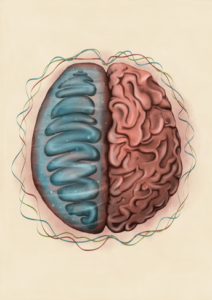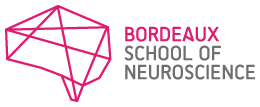The brain is one of the most energy-consuming organs of the body. Indeed, one could say that the main difference between the brain and a computer is the plug: once plugged, energy is not an issue for the computer, but it is a constant burden for each cell of the brain. As such, energy metabolism in the brain is not just a mere housekeeping and survival service, but it constitutes an essential element directly participating in signaling, computation and behavior. This course will address the different ways by which energy metabolism participates to high-order brain functions and the underlying cellular, molecular and circuit mechanisms.
Course director & co-directors
- Juan Pedro Bolaños (University of Salamanca, Spain)
- Giovanni Marsicano (University of Bordeaux, France)
- Anne-Karine Bouzier-Sore (University of Bordeaux, France)
February 28 – 11:00am
Juan Pedro Bolaños (University of Salamanca, Spain)
Metabolic shapes of brain cells and functional consequences
March 1 – 9:00am
Giovanni Marsicano (University of Bordeaux, France)
Cannabinoid receptors in brain metabolism
March 1 – 11:45am
Biomtech presentation
In vivo molecular screening in the assessment of animal model diseases and therapy schemes
March 3 – 9:00am
Luc Pellerin (University of Poitiers, France)
Astrocyte-neuron lactate shuttle: Regulation of monocarboxylate transporters and role in learning and memory
March 3 – 11:00am
Aude Panatier (University of Bordeaux, France)
D-serine, a metabolic compound playing key role in synaptic transmission and plasticity
March 5 – 9:00am
Gilles Bonvento (François Jacob Institute of Biology – MIRCen, France)
Astrocyte-neuron metabolic cooperation shapes brain activity in health and disease
March 7 – 9:00am
Carmen Sandi (École Polytechnique Fédérale de Lausanne – EPFL, Switzerland)
Neural circuits and metabolic pathways on the link between stress, anxiety and motivation
March 7 – 11:00am
Felipe Barros (Center for Scientific Studies – CECs, Chile)
Metabolic imaging with genetically-encoded fluorescent sensors
March 10 – 11:00am
Jaime De Juan-Sanz (Paris Brain Institute, France)
The role of mitochondrial metabolism in the sustainability of synaptic function
March 10 – 2:00pm (remotely)
Stephanie Fulton (University of Montreal, Canada)
Neural fatty acid metabolism: Implications for energy balance and motivation
March 14 – 9:00am
Anne-Karine Bouzier-Sore (University of Bordeaux, France)
Functional Neuroenergetics: the role of glial cells, contribution of NMR
March 14 – 11:45am
3Brains presentation
HD-MEAs and CorePlate multiwells: AI-assisted electrical imaging technology for next-generation neuroscience
March 15 – 9:00am
Daniela Cota (University of Bordeaux, France)
Brain bile acids signaling in energy balance
March 15 – 11:00am
Agilent presentation
Introduction to Seahorse applications for functionnal analysis of cellular metabolism in real time
March 17 – 9:00am
Ralf Jockers (Cochin Institute, France)
Localized and biased G protein-coupled receptor signaling
Felipe Baeza-Lehnert (University of Leipzig, Germany)
Jérôme Baufreton (University of Bordeaux, France)
Luigi Bellocchio (University of Bordeaux, France)
Giovanni Bénard (Rare Diseases Genetics and Metabolism laboratory – MRGM, France)
Abel Eraso Pichot (University of Bordeaux, France)
Ignacio Fernandez-Moncada (University of Bordeaux, France)
Marina Garcia Macia (University of Salamanca, Spain)
Anna Hadjichambi (Institute of Hepatology London, UK)
Morgane Jego (University of Bordeaux, France)
Daniel Jimenez (University of Salamanca, Spain)
Christos Konstantinou (Institute of Hepatology London, UK)
Rodrigo Lerchundi (François Jacob Institute of biology – MIRCen, France)
Shingo Nakajima (University of Montreal, Canada)
Antonio Pagano-Zottola (University of Bordeaux, France)
Sandrine Pouvreau (University of Bordeaux, France)
Rubén Quintana-Cabrera (University of Salamanca, Spain)

Keynote speakers
Felipe Barros (Center for Scientific Studies – CECs, Chile)
Gilles Bonvento (François Jacob Institute of biology – MIRCen, France)
Daniela Cota (University of Bordeaux, France)
Jaime De Juan-Sanz (Paris Brain Institute, France)
Stephanie Fulton (University of Montreal, Canada)
Ralf Jockers (Cochin Institute, France)
Aude Panatier (University of Bordeaux, France)
Luc Pellerin (University of Poitiers, France)
Carmen Sandi (École Polytechnique Fédérale de Lausanne – EPFL, Switzerland)




